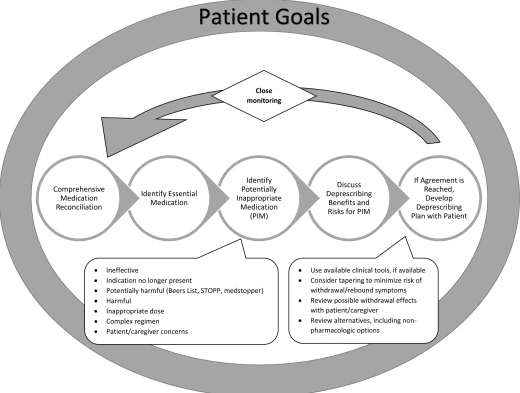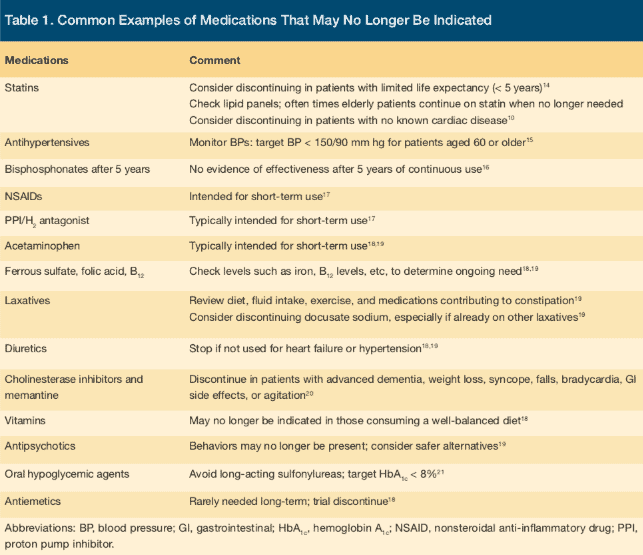Understanding Dementia Medication Side Effects: A Guide for Families

Discover the potential side effects of dementia medications and how to support your loved one. Stay informed!
Read MoreUnderstanding Dementia Medication Side Effects: A Guide for FamiliesHow to Use the Beers Criteria for Medication Reconciliation and Deprescribing in Hospice Care: 10 Case Studies

In this article, we will discuss how to use the Beers Criteria to identify PIMs and potential prescribing omissions (PPOs) in hospice patients. PPOs are medications that are indicated but not prescribed for a specific patient or population, or that are prescribed at a suboptimal dose or duration. We will also present 10 case studies to illustrate the medication reconciliation and deprescribing process and the outcomes of medication changes in different scenarios.
Read MoreHow to Use the Beers Criteria for Medication Reconciliation and Deprescribing in Hospice Care: 10 Case StudiesHow to Use the START/STOPP Criteria for Medication Reconciliation and Deprescribing in Hospice Care: 10 Case Studies

If you are caring for a terminally ill patient in hospice, you know how challenging it can be to manage their medications. You want to make sure they are getting the best possible care, but you also want to avoid unnecessary or harmful drugs that may worsen their quality of life or cause adverse effects.
That’s where medication reconciliation and deprescribing come in. Medication reconciliation is the process of reviewing and updating the patient’s medication list to ensure accuracy and completeness. Deprescribing is the process of reducing or stopping medications that are no longer needed, effective, or appropriate for the patient’s condition and goals of care.
Read MoreHow to Use the START/STOPP Criteria for Medication Reconciliation and Deprescribing in Hospice Care: 10 Case StudiesThe Benefits of Deprescribing Medications in Hospice: A Guide for Patients, Families, and Hospice Nurses

I know how important it is to provide comfort and support during this challenging journey. One aspect of hospice care that often raises concerns is deprescribing medications. In this article, we'll explore what deprescribing is and why it can benefit patients nearing the end of life.
Read MoreThe Benefits of Deprescribing Medications in Hospice: A Guide for Patients, Families, and Hospice NursesImportance of Medication Reconciliation in Hospice Care

Medication reconciliation plays a pivotal role in hospice care, ensuring that terminally ill patients receive the most appropriate and safe medication regimens. This process involves creating and maintaining an accurate list of a patient's medications to prevent adverse drug events and enhance their overall well-being. In this article, we will delve into the importance of medication reconciliation, including its recommended frequency and the reconciliation process.
Read MoreImportance of Medication Reconciliation in Hospice Care